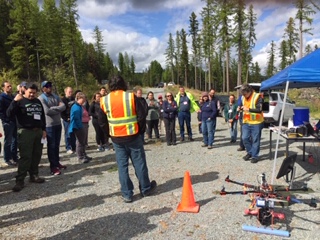Montana LTAP Hits the Ground Running

Montana LTAP has been hitting the roads hard this summer. Director Matt Ulberg and Field Trainer Shawna Page have conducted a variety of trainings in Lewistown, Miles City, Bozeman, Sidney, Billings, Boulder, Kalispell, and Cutbank to name a few. They’ve also hosted classes at four Montana colleges, on the Rocky Boy, North Cheyenne, Crow, and […]
12th TRB International Conference on Low Volume Roads comes to Kalispell, Montana

Kalispell, Montana proved to be an ideal venue for the 12th TRB International Conference on Low Volume Roads, held in late September. Sponsored by the Transportation Research Board and co-sponsored by the Forest Service, U.S. Department of Agriculture, the conference welcomed 250 participants from 22 countries who experienced low volume roads in northwest Montana firsthand. […]
Montana LTAP Director Elected to National Post

Congratulations, Matt Ulberg! The Director of the Montana Local Technical Assistance Program (LTAP) was elected Vice President of the National Local Technical and Tribal Assistance Program Association (NLTAPA) at the Annual NLTAPA Meeting August 14th in Stowe, Vermont. As the National Association’s Vice-President, Matt also serves as the co-chair of the NLTAPA Partnership Work Group. […]
